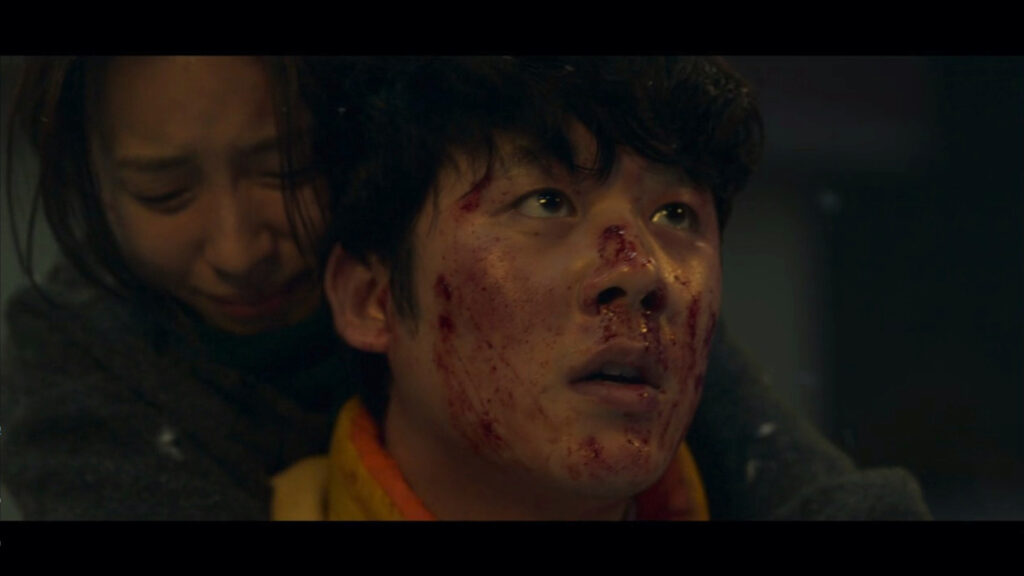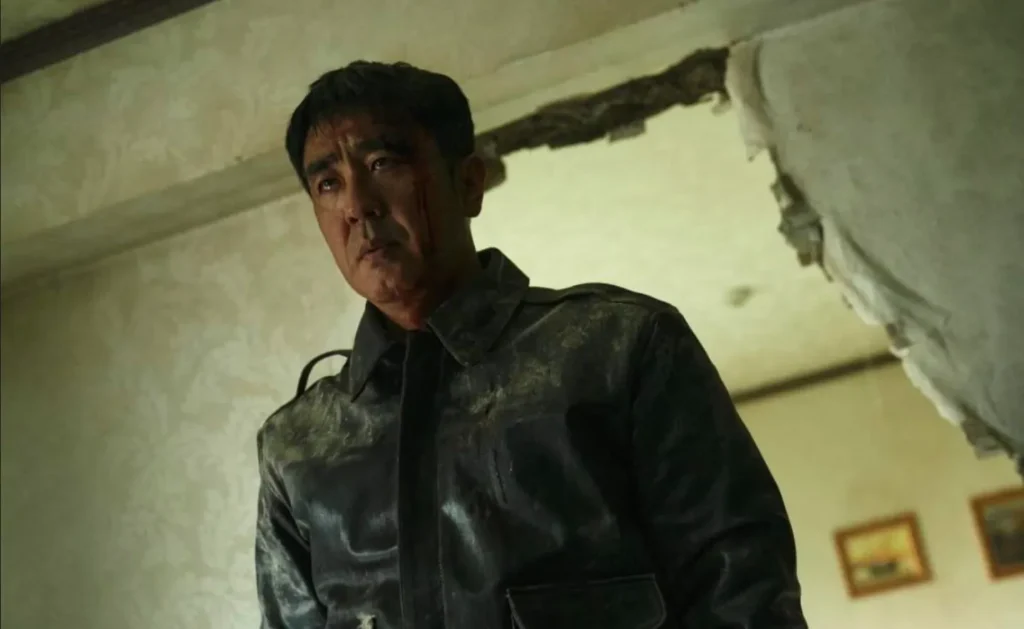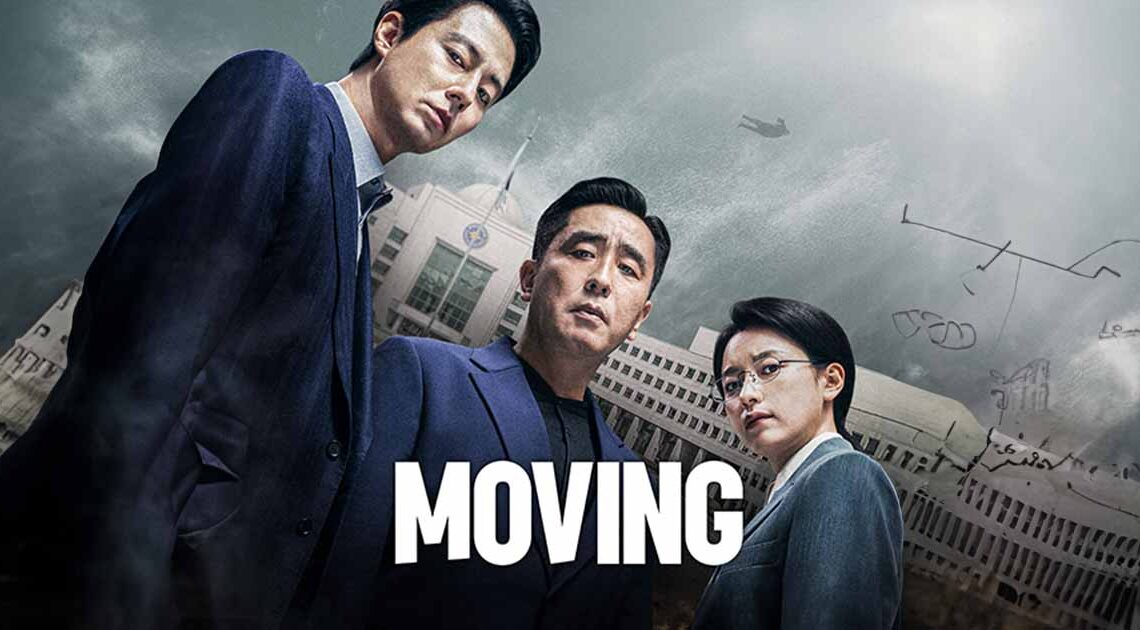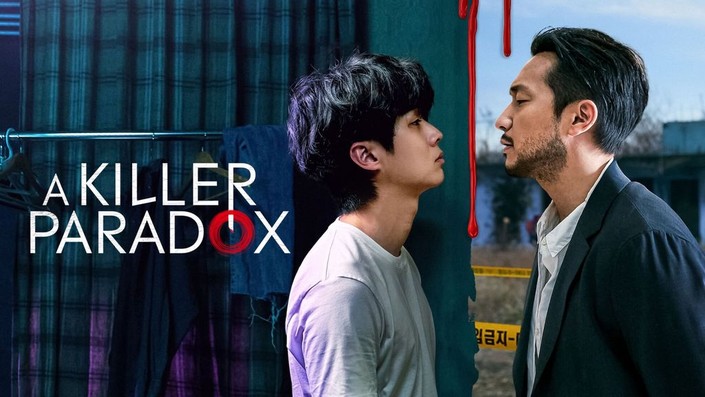In recent times, the realm of superheroes has seen an unprecedented rise, captivating audiences worldwide with its blend of heroism and villainy. This era has witnessed a myriad of narratives, ranging from traditional battles of good vs. evil to intricate plots that challenge conventional storytelling norms. Amidst this plethora of offerings, “Moving” emerges as a distinctive Korean Drama that not only harnesses the allure of the superhero genre but also pushes its boundaries.

Revolutionizing Superhero Narratives
“Moving,” adapted from Kang Full’s webcomic, encapsulates the appeal of superhero stories while infusing them with innovation through nuanced storytelling and rich character development. The series commences with a seemingly ordinary tale: Kim Bong-seok (brilliantly portrayed by Lee Jung-ha), a likable high schooler, forms a bond with Jang Hui-soo (effortlessly brought to life by Go Yoon-jung), a newcomer to his school. Yet, beneath this facade lies a complex universe where possessing superhuman abilities is both a privilege and a curse.
Bong-seok’s protective mother, Lee Mi-hyun (exceptionally acted by Han Hyo-joo), takes extreme measures due to her son’s ability to fly, including using a weighted blanket and carrying heavy weights to simulate gravity. Mi-hyun, owner of a local eatery, possesses acute senses and conceals firearms within her sewing kit, suggesting a concealed past.
Hui-soo and her father, Jang Ju-won (masterfully played by Ryu Seung-ryong), possess the rare ability to recover swiftly from injuries. Additional characters include the introspective class president Lee Gang-hoon (expertly portrayed by Kim Do-hoon) and his father Lee Jae-man (skillfully acted by Kim Sung-kyung), both blessed with super strength, alongside a bus driver named Jeon Gye-do (charmingly played by Cha Tae-hyun) capable of generating electricity.
As the storyline progresses, the protagonists uncover that their former spy parents are being targeted by a lethal assassin with supernatural capabilities. Realizing that their offspring, who have inherited their powers, are the actual targets, Mi-hyun and Ju-won navigate through a treacherous path.

Emotional Depth and Character Complexity
“Moving” transcends the typical superhero tropes by delving deep into the personal lives and familial bonds of its characters, exploring their insecurities and the psychological impact of their abilities. The adult characters, branded as “monsters” by the National Intelligence Service (NIS) seeking to exploit their powers for national defense, are portrayed with empathy and complexity. The series further expands its narrative scope by introducing a parallel storyline set in North Korea, adding a layer of geopolitical intrigue.
The series excels in fleshing out its characters. Ju-won, initially a cautious gangster, is co-opted by the NIS and undergoes significant changes, highlighted through his budding romance and growing comprehension of his powers. Ryu Seung-ryong delivers a memorable performance, especially in his scenes with Hui-soo, beautifully portrayed by Yoon-jung. Their relationship is marked by unspoken understandings and a profound awareness of past traumas.
Mi-hyun’s backstory, involving her encounter with black ops agent Kim Doo-sik (convincingly played by Jo In-sung), is among the series’ most touching and poignant arcs. Hyo-joo and In-sung excel in their roles, depicting agents who fall in love amidst the chaos of their profession. Mi-hyun’s dynamic with her son Bong-seok, characterized by teenage defiance and latent abilities, is both heartwarming and fraught with tension.
Superb Cinematography and Narrative Craftsmanship
“Moving” utilizes its South Korean setting to amplify its narrative, capturing the serene beauty of rural areas and the vibrant energy of urban environments, reflecting the inner turmoil and external challenges faced by its characters. The pacing is consistent, with episodes designed to maintain viewer engagement through a mix of intense drama and intimate character moments.
At its core, “Moving” explores themes of family loyalty and resistance against oppressive forces. It critically examines the exploitation of superhumans in larger political schemes, positioning those in positions of power as the primary adversaries fueling cycles of violence. The creators, Kang Full for the script and directors Park In-je and Park Younseo, meticulously construct the universe, providing each character with comprehensive backstories that evoke strong emotions.
Despite its extensive run, “Moving” maintains a coherent narrative arc, concluding with a focused storyline and leaving viewers intrigued by a post-credits teaser hinting at potential sequels.

Potential for Further Exploration
While many series conclude with setups for continuations, “Moving” wraps up neatly, offering viewers a satisfying conclusion while teasing future developments. The series’ success stems from its ability to merge genre conventions with innovative storytelling, establishing itself as a standout series of the year.
Given its strengths, speculation about a continuation or spin-off is exciting. Until then, “Moving” stands as a testament to the potential of character-driven storytelling within the superhero genre, offering a fresh perspective that challenges and delights audiences.
In conclusion, “Moving” on Disney+ is a must-see for enthusiasts of superhero dramas and K-Dramas. Its engaging characters, intricate plotlines, and emotional resonance make it a notable series that redefines the superhero narrative.




1 Comment
Hi, this is a comment.
To get started with moderating, editing, and deleting comments, please visit the Comments screen in the dashboard.
Commenter avatars come from Gravatar.